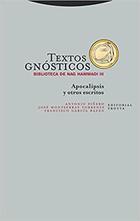
The library of Nag Hammadi constitutes, together with the manuscripts of Qumran, the most important discovery of ancient texts of the modern Era. Most of the writings that comprise this library are Gnostics. Today we know that gnosis and gnosticism form the nucleus of a movement of ideas that dominated the religious and philosophical thought of the Mediterranean basin between the I and IV centuries of our era. The library of Nag Hammadi sheds a decisive light for our knowledge not only of Gnosticism, but of the whole scope of philosophical and religious speculation (Jewish, Christian and pagan) in the Greek language of the 1st to 4th centuries, and of the scope of the Egyptian culture, Coptic, of the fourth century, in which there were varied interests, not only Gnostics, but also hermetic, Christian and Manichean. This work presents the first complete version of these manuscripts on ...read more















